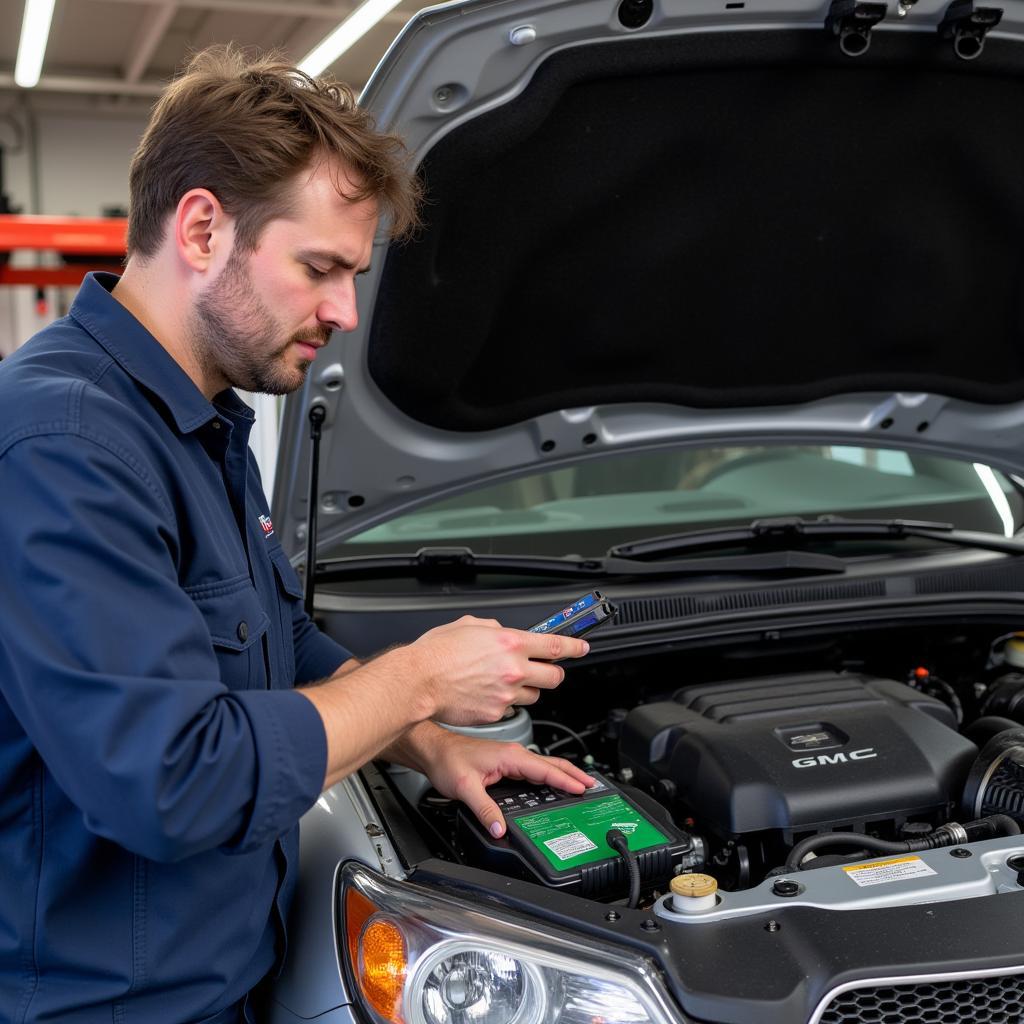Car rotors are essential components in your braking system, ensuring your vehicle comes to a safe and controlled stop. However, like any mechanical part, rotors can wear down over time and require replacement. This can leave you wondering how much it will cost to fix car rotors. In this comprehensive guide, we’ll break down the factors that influence the cost, explore the signs of worn rotors, and offer insights into the repair process.
Understanding Car Rotor Replacement Costs
The cost of replacing car rotors varies depending on several factors, including:
- Vehicle Make and Model: Different car models use different rotor sizes and materials, impacting the cost.
- Rotor Type: There are various types of rotors, including solid, ventilated, and cross-drilled, each with its own price point.
- Labor Costs: The labor cost for rotor replacement varies based on the mechanic’s experience and location.
- Parts Cost: The price of replacement rotors can fluctuate depending on the brand and quality.
- Additional Services: Sometimes, other repairs, such as brake pad replacement or caliper service, may be required, adding to the overall cost.
Common Signs of Worn Car Rotors
It’s crucial to recognize the signs of worn car rotors to address the issue before it becomes a safety hazard. Look out for these indicators:
- Vibrating Brakes: This is a telltale sign of warped rotors, causing the brake pedal to vibrate when braking.
- Grinding Noise: A grinding noise when braking is a clear indication that the brake pads have worn down and are grinding against the rotor surface.
- Longer Braking Distance: If your car takes longer than usual to stop, it could be a sign of worn rotors affecting the braking efficiency.
- Visible Grooves or Scratches: Inspecting your rotors for visible grooves or scratches can help identify wear and tear.
- Uneven Pad Wear: If one or more brake pads are wearing down faster than others, it may indicate a warped rotor.
How Much Can I Expect to Pay?
While it’s challenging to provide an exact cost without assessing your specific car, here’s a general range:
- Basic Rotor Replacement: Expect to pay around $200 to $500 for a basic rotor replacement, including parts and labor.
- High-Performance Rotors: If you need high-performance rotors, the price can range from $300 to $800 due to their advanced materials and manufacturing techniques.
- Additional Repairs: Adding brake pad replacement or other services can significantly increase the total cost, potentially reaching $600 to $1200 or more.
DIY Rotor Replacement: Pros and Cons
If you’re mechanically inclined and have the right tools, you might consider replacing the rotors yourself. However, it’s essential to weigh the pros and cons before making a decision.
Pros:
- Cost Savings: Performing the repair yourself can significantly reduce the cost compared to hiring a mechanic.
- Knowledge Gain: Replacing the rotors yourself can give you hands-on experience and knowledge of your car’s braking system.
- Sense of Accomplishment: Successfully completing the repair yourself can provide a sense of accomplishment and satisfaction.
Cons:
- Potential Damage: Improper installation can damage the rotors or other brake system components.
- Time Commitment: Replacing rotors requires time and effort, especially for inexperienced individuals.
- Safety Concerns: Working with brake systems requires caution, and a single mistake can lead to serious consequences.
Choosing a Reliable Mechanic for Car Rotor Replacement
If you decide to have the rotors replaced by a mechanic, it’s crucial to choose a reputable and experienced technician. Here are some tips:
- Seek Recommendations: Ask friends, family, and colleagues for recommendations on trusted mechanics.
- Check Online Reviews: Explore online platforms like Yelp or Google Reviews to see what other customers have to say about the mechanic’s service.
- Verify Credentials: Ensure the mechanic is certified and has experience working on your car’s make and model.
- Ask for a Quote: Get a detailed quote for the repair, including parts and labor costs, to compare prices from different mechanics.
Preventive Maintenance for Car Rotors
Regular maintenance can help extend the life of your car rotors and prevent premature replacement. Here are some tips:
- Maintain Proper Brake Pad Thickness: Ensure your brake pads are replaced before they wear down completely, preventing excessive rotor wear.
- Avoid Aggressive Braking: Sudden and hard braking can put excessive stress on the rotors, accelerating wear.
- Regular Inspections: Have your brakes inspected regularly by a trusted mechanic, even if you don’t notice any issues.
- Avoid Harsh Driving Conditions: Minimize driving on rough roads or in extreme temperatures, which can contribute to rotor wear.
Conclusion
Replacing car rotors is a necessary maintenance task that ensures your vehicle’s braking safety. By understanding the factors that influence the cost, recognizing the signs of worn rotors, and choosing a reliable mechanic, you can make informed decisions about your car’s maintenance.
Remember: Your safety is paramount. If you suspect your rotors are worn, seek professional advice immediately.
For expert advice and assistance with your car’s braking system, contact AutoTipPro today. We’re here to help!
Phone: +1 (641) 206-8880
Office: 500 N St Mary’s St, San Antonio, TX 78205, United States
FAQs
Q: How often should I replace my car rotors?
A: This varies depending on driving habits and conditions. However, it’s generally recommended to replace them every 50,000 to 70,000 miles.
Q: Can I drive with worn rotors?
A: It’s not recommended. Worn rotors can compromise your braking efficiency and put your safety at risk.
Q: Are all car rotors the same?
A: No, rotors vary in size, material, and performance characteristics based on the vehicle make and model.
Q: Can I replace just the brake pads without replacing the rotors?
A: You can, but it’s best to replace both together if the rotors show signs of wear.
Q: What is the difference between solid and ventilated rotors?
A: Ventilated rotors have channels or fins to improve cooling, reducing brake fade during heavy braking.





Leave a Reply